Having a dog in your life can bring endless joy, companionship, and love. But sometimes, you might notice a few quirky behaviors that suggest your furry friend is not just any ordinary canine. You may have an alpha dog on your hands! Understanding these signs can help you lead effectively and ensure a happy and harmonious household. Here’s a rundown of 15 signs that your dog is the alpha in the pack, and what it might mean for your relationship with them.
1. Your Dog Insists On Leading the Way
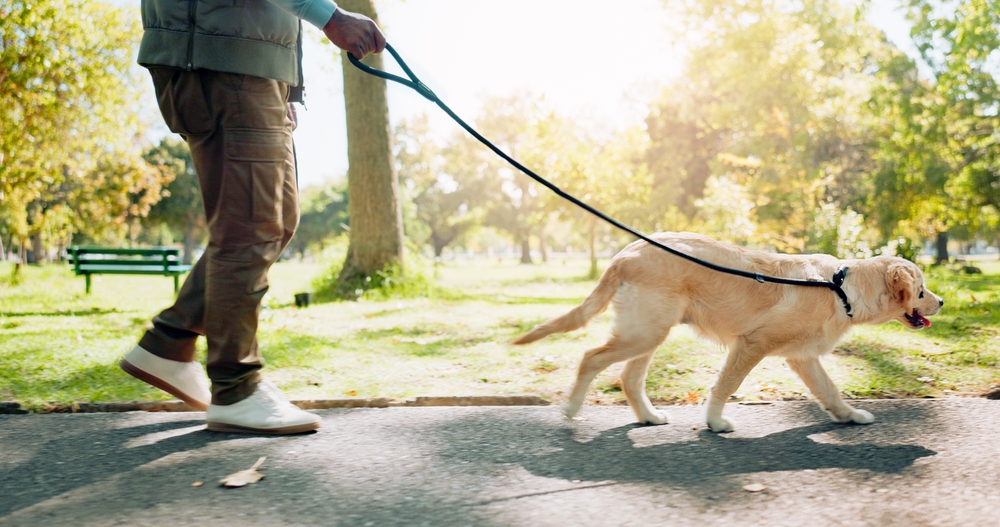
If your dog always insists on walking ahead of you during walks, it might be a sign that they see themselves as the leader of your little pack. This behavior could stem from an innate need to lead and protect, as dogs often interpret being at the front as a position of power. You might notice them being slightly more alert or on the lookout for any potential threats. It’s not necessarily a bad thing, but it’s important to teach them to walk beside you to reinforce your role as the leader. According to the American Kennel Club, consistent training and gentle guidance can help your dog learn to follow your lead. Try using command words and rewards to encourage walking beside you.
Moreover, walking ahead might make your dog feel responsible for any encounters during your walk. This could lead to them being overly protective or reactive in certain situations. By teaching your dog to walk by your side, you reduce their stress and help them relax, knowing you’re in charge. It strengthens your bond and fosters trust, making your walks more enjoyable for both of you. Consider incorporating regular training sessions to reinforce this new dynamic and help your pup understand their role.
2. Your Dog Is Possessive Over Toys And Food
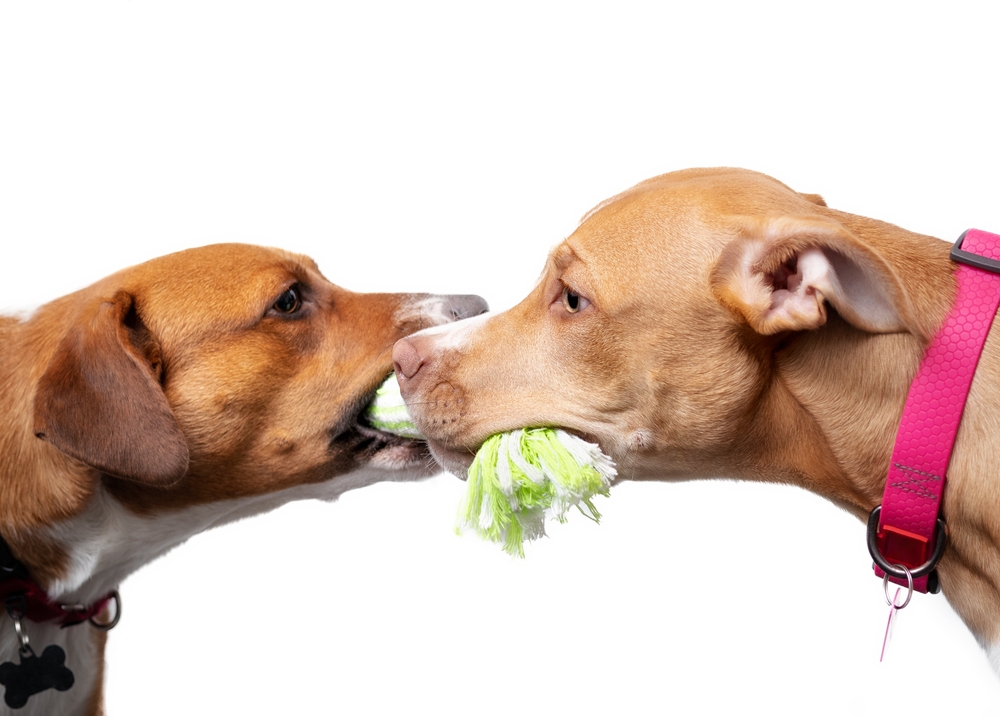
Does your dog guard their toys or food fiercely? This behavior and other signs of strength and dominance can indicate an alpha mentality, according to Forbes. Possessiveness often arises from a natural instinct to protect resources. Your canine companion might growl or even snap if you try to take something away from them. Although it might seem harmless, this behavior needs addressing to prevent any potential aggression. It’s essential to teach your dog that sharing is okay and that you are the provider of resources.
To tackle this, practice trading games where you swap one toy for another or exchange their food bowl for a treat. This teaches them that relinquishing control doesn’t mean losing out. Also, ensure that your dog has plenty of toys and activities to keep them stimulated and satisfied. This reduces their need to be possessive and promotes a more harmonious environment at home. Over time, these practices will help your dog feel more secure and less inclined to guard their possessions.
3. Your Dog Constantly Demands Attention
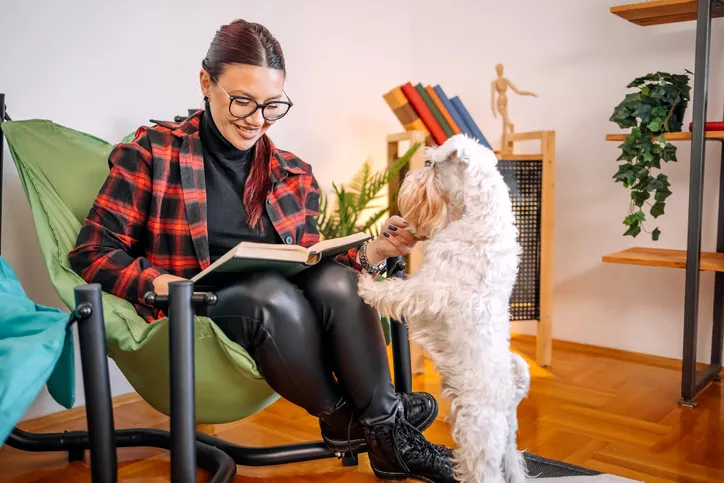
If your dog nudges your hand or barks for attention whenever you’re busy, they might exhibit alpha tendencies. Alpha dogs often demand attention and might not be shy about interrupting you to get it. While it might be cute at first, setting boundaries is crucial to maintain a balanced relationship. Ignoring them when they demand attention and rewarding them when they wait patiently can effectively manage this behavior. According to PetMD, consistency is key when teaching your dog that they can’t always demand all of your attention.
An alpha dog might also follow you around the house, ensuring they are always the center of your world. While having a loyal companion is heartwarming, this constant demand for attention can become overwhelming. Make sure to establish a schedule that includes dedicated playtime, walks, and rest, teaching your dog that there is a time and place for everything. By providing structured attention, you can help your dog feel secure while maintaining your own personal space. This balance is crucial for both your happiness and theirs.
4. Your Dog Sets The Routine
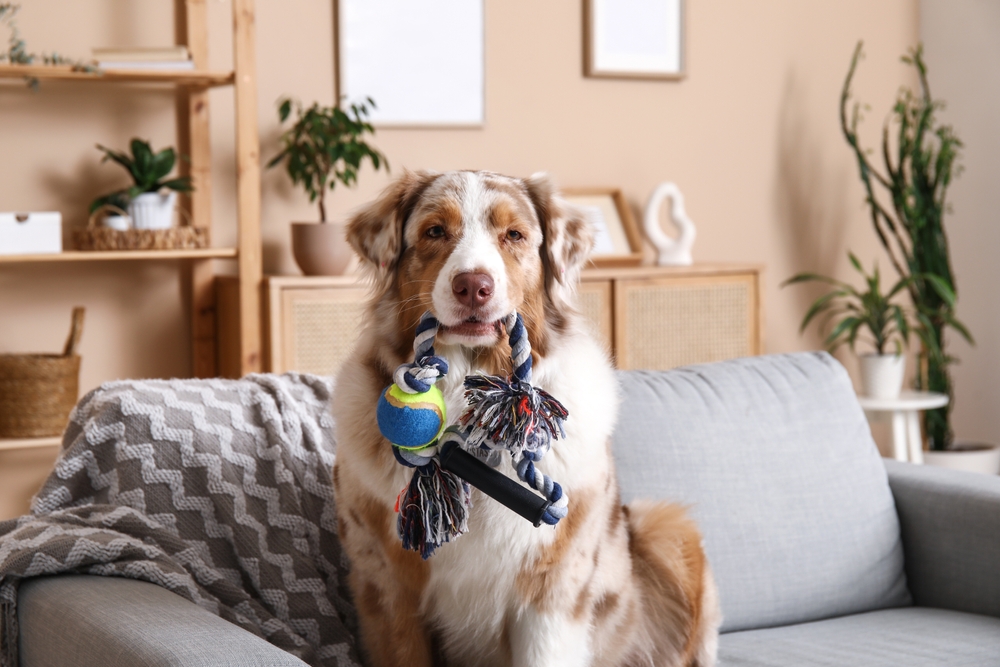
Does your dog wake you up for walks or remind you when it’s feeding time? If so, they might be dictating the daily routine, a classic sign of alpha behavior. Dogs are creatures of habit, and while they thrive on routines, it’s essential that you’re the one setting them. When your dog dictates the schedule, it gives them a sense of control over the household. Try gradually adjusting the routine to break this habit, so they understand you’re in charge.
Change feeding times slightly by moving them forward or backward by 10-15 minutes, and adjust walk times to ensure that their schedule aligns with yours. This helps reinforce your role as the leader and can alleviate any anxiety they might feel when things don’t go as expected. Encourage them to wait patiently by rewarding calm behavior before activities. Over time, these small adjustments will help shift the control back to you. Remember, it’s crucial to be patient and ensure that changes are gradual to avoid confusion or stress.
5. Your Dog Shows Dominance Over Other Pets
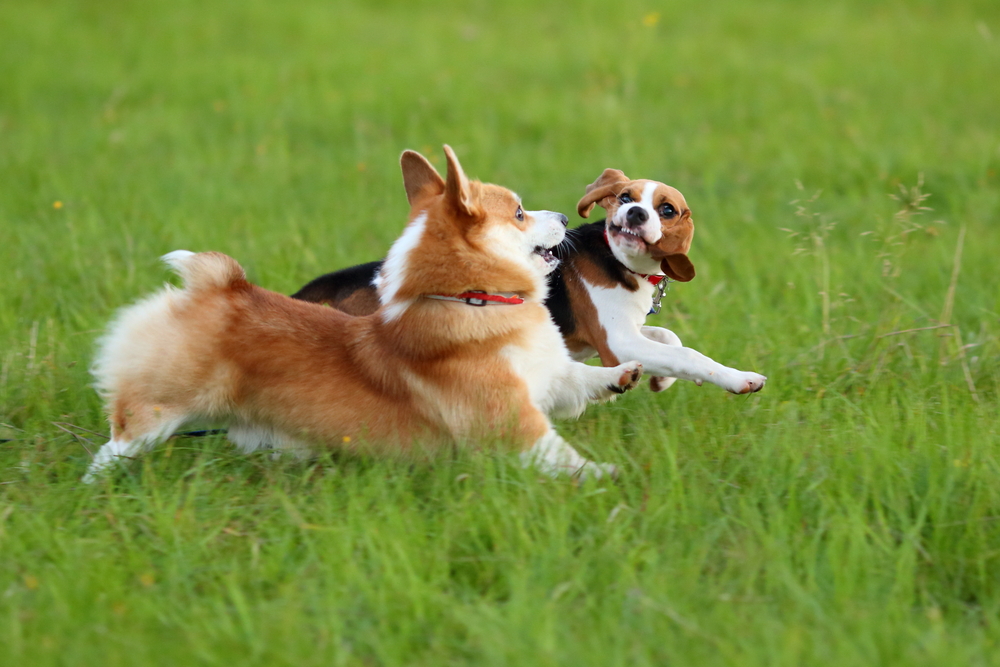
If you have multiple pets, observe how your dog interacts with them. An alpha dog might try to assert dominance by taking toys, pushing others out of the way, or eating first. This behavior could lead to tension or conflict among your furry friends. It’s important to manage their interactions to ensure everyone in the household feels secure and respected. Consider setting boundaries during feeding times and ensuring each pet has their own space and resources.
Training can be particularly effective in teaching your alpha dog to be more considerate of their housemates. Reward positive interactions and use gentle corrections when they try to assert dominance inappropriately. This helps them understand the value of cooperation and sharing. Regular play sessions with all pets can also promote a sense of community and reduce competitiveness. By fostering a balanced environment, you ensure that all your pets can coexist happily, reducing stress for everyone involved.
6. Your Dog Is Always On Guard
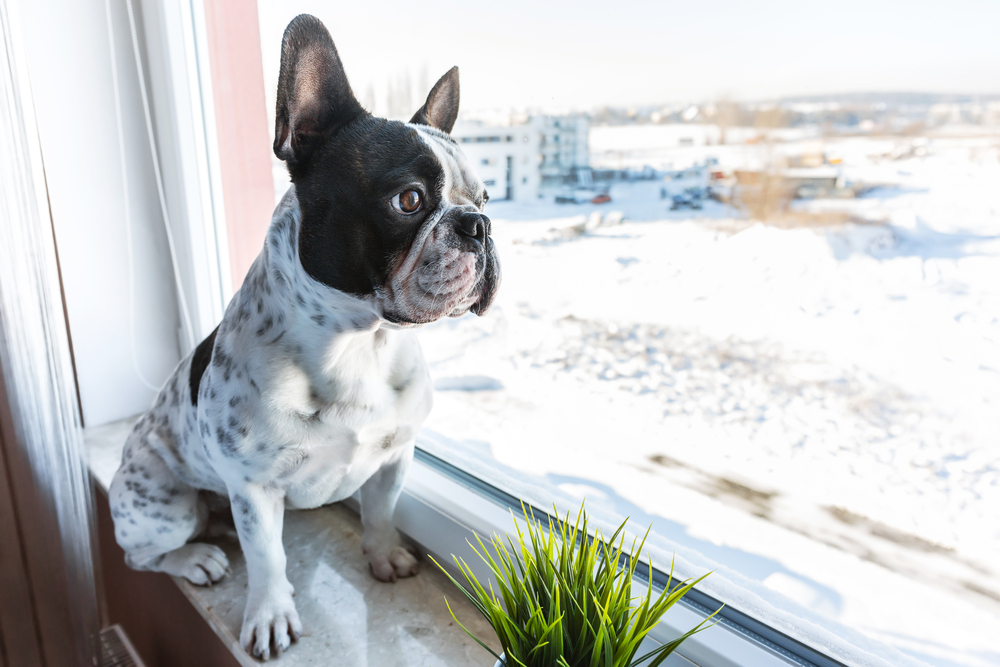
An alpha dog often feels the need to be alert at all times, ready to protect their territory and family. You might notice your dog standing by the window, monitoring passersby, or responding vocally to any unusual noises. While it’s beneficial to have a vigilant companion, this behavior can sometimes lead to unnecessary stress or overreaction. Teaching your dog when to relax can help mitigate this constant state of alertness.
Encourage calm behavior by rewarding them when they remain quiet during triggers like the doorbell or a car passing by. Introduce them to new sounds and situations gradually to help them discern between genuine threats and everyday distractions. Over time, this can help your dog feel less pressure to be on guard constantly. Practice relaxation techniques, such as providing a safe, comfortable space where they can unwind. This helps balance their protective instincts with a more relaxed demeanor, benefiting their overall well-being.
7. Your Dog Challenges Commands
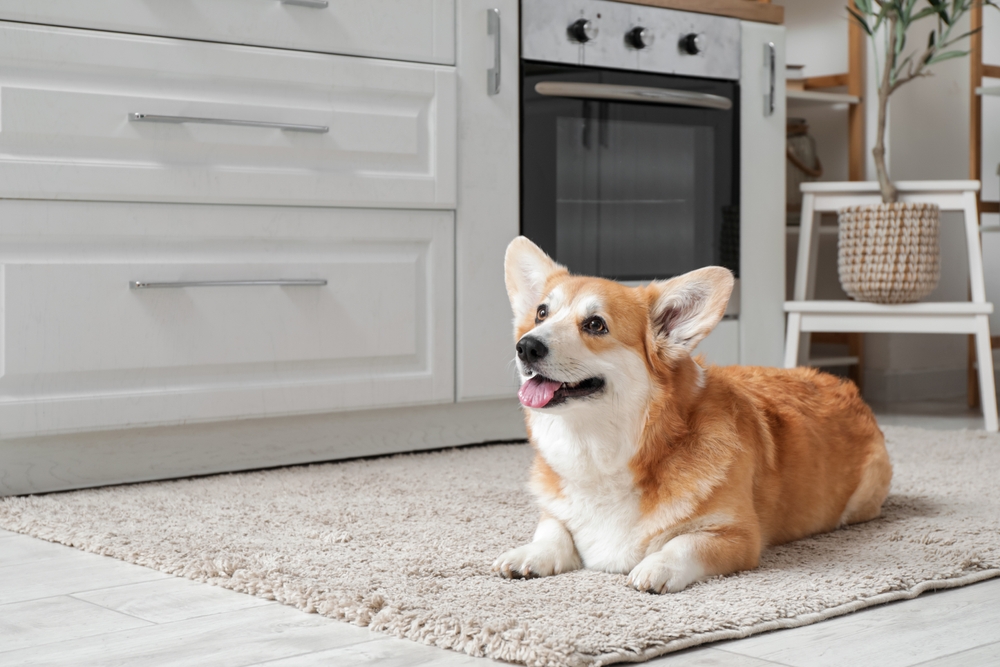
If your dog frequently ignores or challenges your commands, they might be displaying alpha tendencies. Instead of responding immediately, they may hesitate or refuse altogether, testing your resolve and authority. This behavior can stem from a confident and independent nature, typical of an alpha dog. Consistent training and reinforcement are essential to establish your role as the leader. Use positive reinforcement to reward compliance and patience to work through their challenging behavior.
To address this, ensure commands are clear and consistent, and that every family member uses the same signals and words. This prevents confusion and reinforces learning. Incorporating obedience classes or working with a professional trainer can also provide valuable guidance and techniques tailored to your dog’s needs. Over time, this consistent approach will help your dog understand the importance of following commands. This fosters a respectful and cooperative relationship, benefiting both you and your furry friend.
8. Your Dog Decides When Playtime Ends
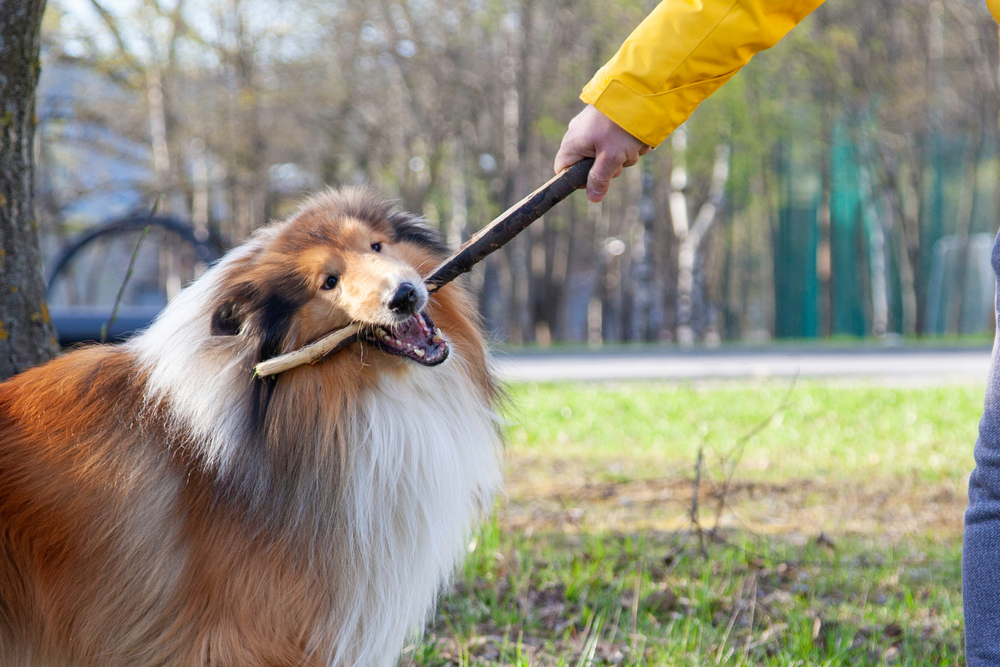
Do you find that playtime always seems to end on your dog’s terms? An alpha dog might dictate when games start and finish, often walking away when they’re done. While it’s great that your dog feels confident, it’s important to teach them that you’re the one who decides when playtime is over. This ensures they understand your role in managing activities and schedules. Try introducing a specific command or signal to indicate the end of playtime, reinforcing it with treats or praise.
Establishing this boundary helps prevent your dog from becoming overly demanding or controlling. It also teaches patience and encourages them to respect your decisions. Be consistent with this practice, as repetition will reinforce the behavior. Additionally, using a mix of games and activities can keep things interesting and ensure your dog is mentally and physically stimulated. By asserting control over play sessions, you maintain a balanced dynamic, benefiting your overall relationship.
9. Your Dog Shows Aggression Towards Strangers
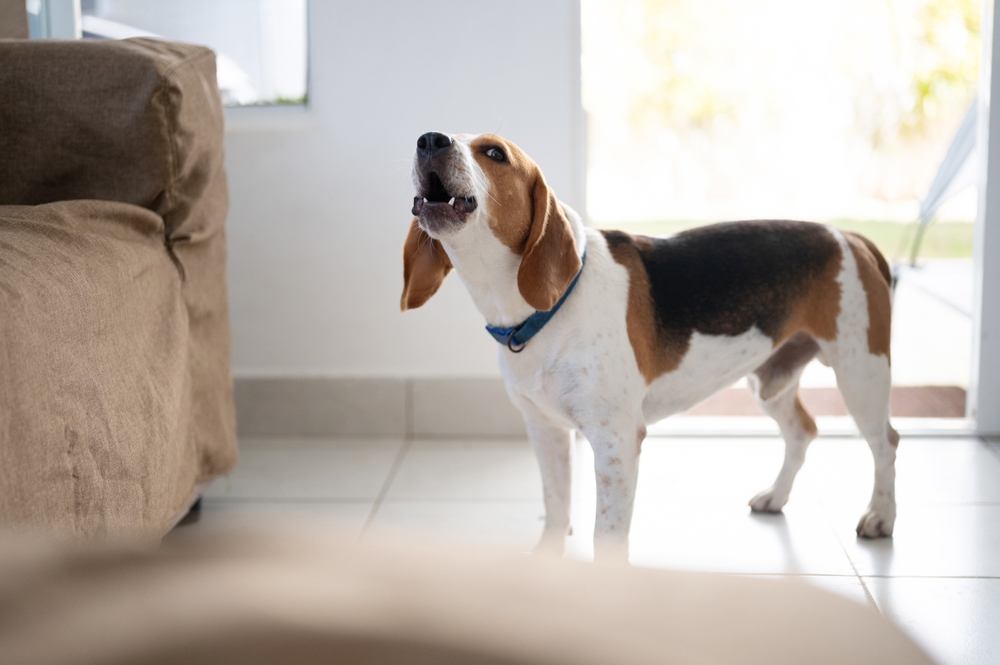
An alpha dog might display aggression towards strangers or unfamiliar dogs, interpreting them as potential threats to their territory or pack. This behavior, while protective in nature, can be problematic in various situations, from walks in the park to guests visiting your home. It’s important to address this with training and socialization to help your dog feel more comfortable around new faces. Early intervention and consistent training can significantly reduce these aggressive tendencies.
Start by gradually introducing your dog to new people and environments, always ensuring positive outcomes. Use treats and praise to reward calm behavior and reinforce positive associations. Working with a professional trainer or attending socialization classes can provide additional strategies and support. Over time, these efforts can help your dog feel more relaxed and less reactive in unfamiliar situations. This not only improves their social skills but also enhances your confidence in managing their behavior.
10. Your Dog Controls The Sleeping Arrangements

Does your dog choose where and when they sleep, often taking the prime spot on the couch or bed? This could be a sign of alpha behavior, as controlling sleeping arrangements is a way for them to assert dominance. While it’s adorable to have your furry friend snuggle up, it’s crucial to set boundaries to ensure they respect your space. Encourage them to have their designated sleeping area, providing comfort and security.
Introduce a cozy dog bed in a quiet spot and use positive reinforcement to guide them there during rest times. If your dog insists on sleeping in your bed, consider setting rules such as only allowing them on the bed when invited. Consistency is key, and everyone in the household should adhere to these rules. Over time, your dog will understand their sleeping area and when it’s appropriate to share your space. This ensures a respectful and balanced relationship within your home.
11. Your Dog Barks Excessively
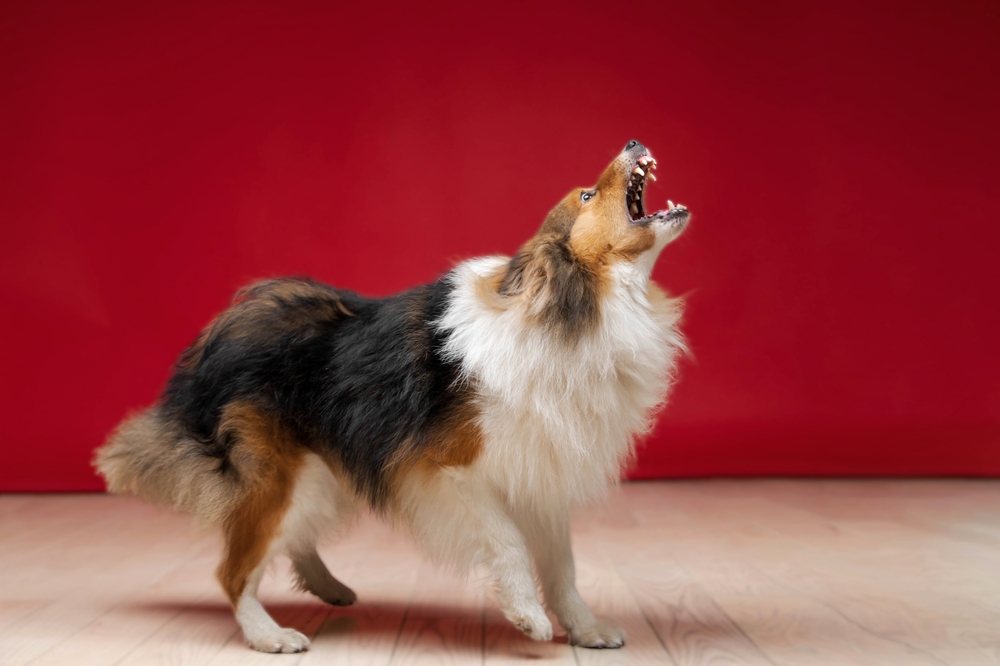
If your dog barks excessively, especially when trying to get your attention or react to external stimuli, they might be exhibiting alpha traits. Barking is a natural form of communication, but when it becomes excessive, it’s important to understand the underlying cause. Alpha dogs might use barking as a way to control situations or express their needs. Training and redirection are crucial in managing this behavior effectively.
Begin by identifying the triggers that lead to excessive barking and work on gradual desensitization. Reward your dog for silence or calm behavior, reinforcing the idea that barking isn’t always necessary. Consistent command training, like the “quiet” command, can also help manage this behavior. Over time, with patience and persistence, your dog will learn when barking is appropriate. This not only reduces stress for both you and your pet but also contributes to a more peaceful environment.
12. Your Dog Is Headstrong And Stubborn
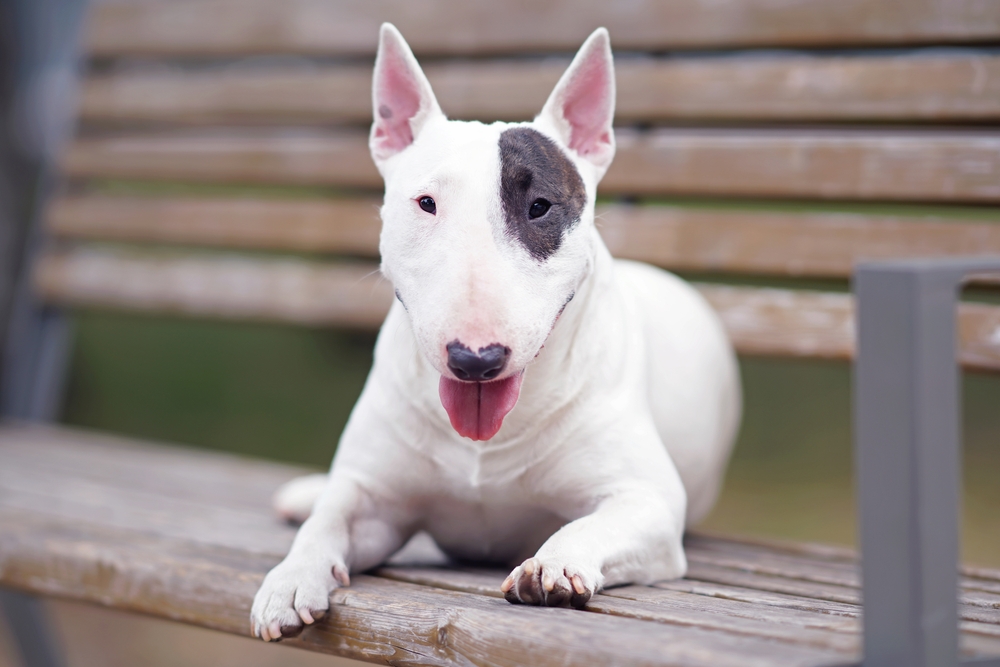
Is your dog particularly stubborn, refusing to follow commands or complete tasks? This could be an alpha trait, as they might feel confident enough to challenge your authority. While it’s natural for dogs to test boundaries occasionally, consistent behavior might indicate a need for clearer leadership. Training sessions that emphasize patience, consistency, and positive reinforcement can help manage this stubborn streak.
Break tasks into smaller, more manageable steps to encourage compliance and build confidence in your dog. Reward small successes and gradually increase the complexity of tasks as they improve. Engaging in regular training sessions helps reinforce your leadership and encourages cooperation. Over time, you’ll notice an improvement in their willingness to follow commands. This not only strengthens your bond but also enhances mutual respect and understanding.
13. Your Dog Is The Master Of The Household
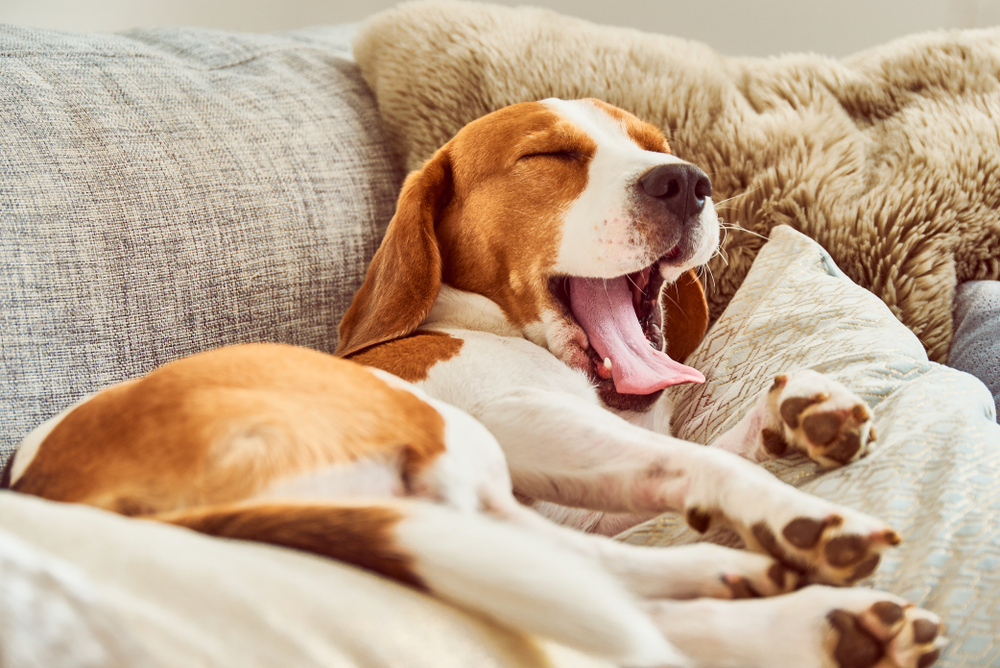
Does your dog seem to have free reign over the house, deciding where they want to be and when? This could be a sign that they view themselves as the alpha, making decisions independently without considering the household rules. While it’s essential for your pet to feel comfortable at home, it’s equally important to set boundaries. Establishing clear rules about where your dog can and can’t go reinforces your leadership.
Use barriers or gates to create specific areas where your dog is allowed, and gradually increase their access as they learn to respect boundaries. Consistency and positive reinforcement are key in teaching them the rules of the house. Additionally, regular training and engagement help redirect their independent nature towards more constructive behavior. Over time, you’ll create a balanced environment where your dog respects the household dynamics. This ensures harmony and mutual respect between all family members.
14. Your Dog Guards Its Stuff For Dear Life
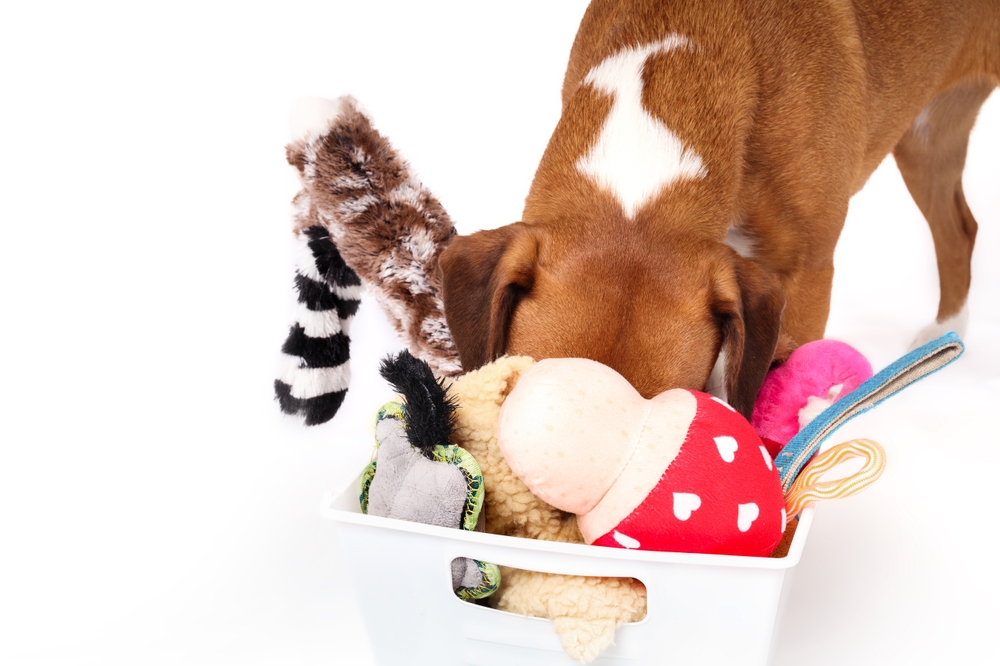
If your dog guards their bed, toys, or even you, they might be displaying alpha behavior. Resource guarding is a way for dogs to assert control and ensure they have access to what they consider important. It’s crucial to address this behavior to prevent potential aggression and ensure a peaceful household. Training and behavior modification can help manage and reduce guarding tendencies.
Begin by teaching your dog that sharing their resources leads to positive outcomes, such as treats or playtime. Practice trading games and encourage them to relinquish control willingly. If resource guarding becomes a significant issue, consulting with a professional trainer or behaviorist can provide tailored strategies. Over time, with patience and consistent training, your dog will learn to feel secure without the need to guard resources. This fosters a more harmonious relationship and reduces tension in your home.
15. Your Dog Is Super Confident In New Situations
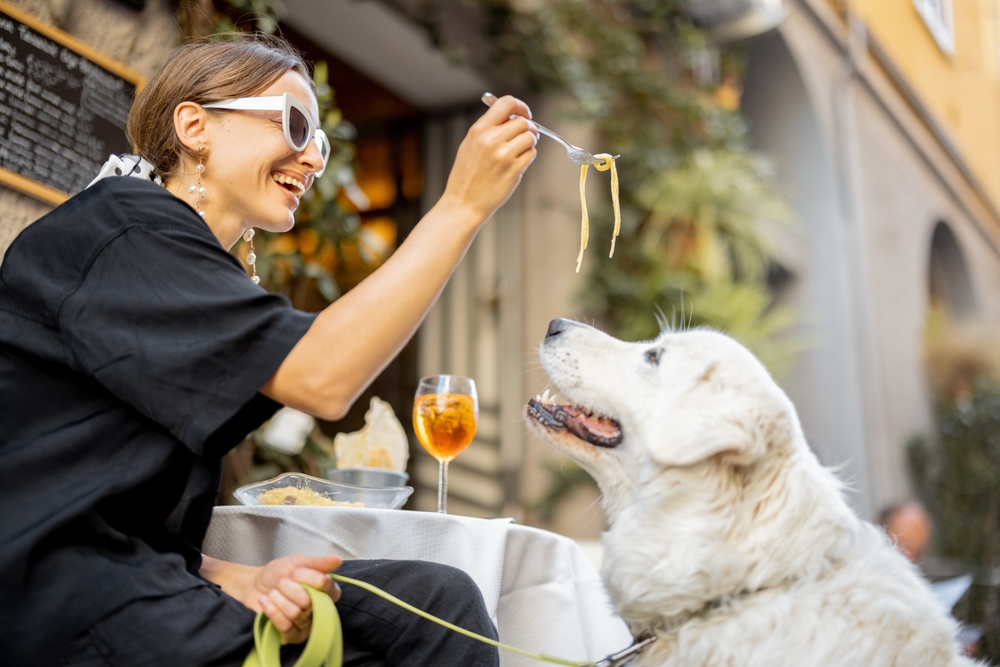
If your dog appears unfazed by new environments or situations, they might possess the confidence typical of an alpha dog. While confidence is a wonderful trait, it’s important to ensure it doesn’t lead to overconfidence or dominance behavior. Encouraging your dog’s confidence through positive experiences and training helps balance their assertive nature. Introduce them to new experiences gradually, ensuring they respond appropriately.
Use positive reinforcement to reward calm and appropriate behavior, reinforcing their confidence in positive ways. Providing a variety of socialization opportunities helps your dog learn to navigate new situations with ease. While their confidence is beneficial, it’s crucial to maintain boundaries and reinforce your leadership. Over time, you’ll nurture their confidence while ensuring they respect your guidance. This balance is essential for a harmonious and respectful relationship.
